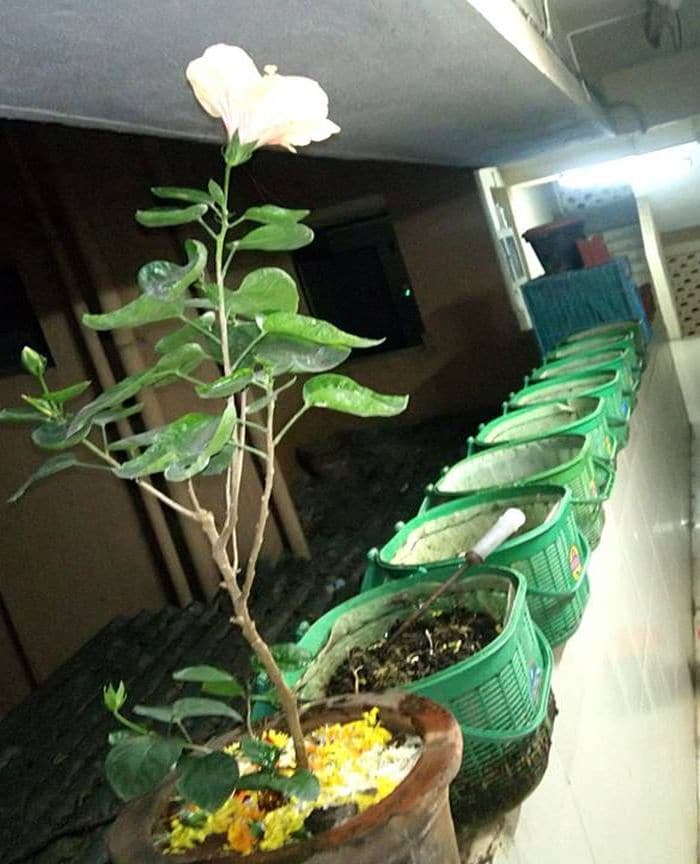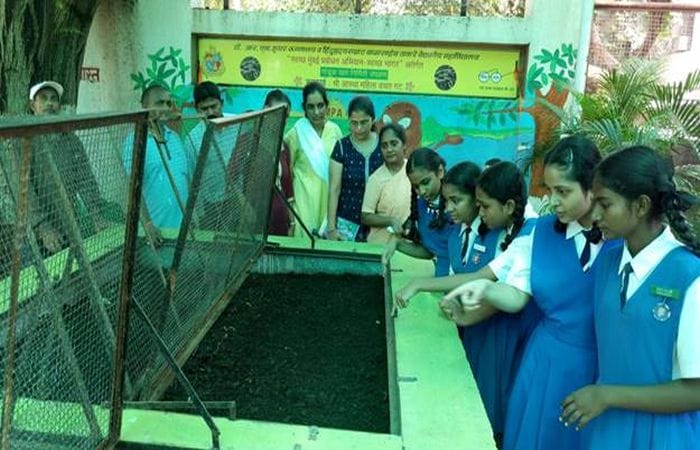Banega Swachh India: Mumbai’s Cooper Hospital Shows How To Manage Waste Effectively
NDTV-Dettol Banega Swachh India chose Mumbai's Cooper Hospital as the setting to launch its Season 5 with Campaign Ambassador Amitabh Bachchan. In 2016, the Hospital started managing their kitchen waste effectively through a simple process of vermi-composting (composting done with the help of earthworms). Today, the hospital is known in the city as a role model for effective waste management as it is daily converting its 150 kilograms of kitchen waste to manure that yields a regular supply of pumpkins, sweet potatoes, lemons, tomatoes, capsicums, banana, to name a few.
The Initial Step: Every day at Cooper hospital, raw green waste like vegetable peels, egg shells, etc. is collected from the hospital kitchen and put in a simple pit separately. That waste is then mixed with cow urine or cow dung and for 10-15 days is left untouched so that the waste can decomposed to some extent.
.jpg)
.jpg)
The Design Of Vermi-Compost Pits: What Mumbai's Cooper Hospital has done is that it has made 5 smart vermi-compost pits - three on one side and two on the other side. The compost pits are low in height and longer in width and is made using bricks. The top layer of the compost pit is covered with a net to protect the manure from birds and other insects. Whereas, the bottom one foot of the pit is covered with water and earthworms. The design of these pits is made in such a way that all the pits are connected to one another.
.jpg)
The Earthworms Attack: On alternate days the half decomposed material is added to these smart vermi-compost pits along with water. So, basically what happens is that the earthworms start eating the waste materials and give in return a smart byproduct which is called manure. In one months' time the hospital gets 5-7 kilograms of manure that is further used in their organic farm for producing fruits and vegetables for their kitchen.
.jpg)
The Benefits: Vermi-composting is a 100 % natural process of getting good manure that has more nutrients. It is cost-effective and requires less maintenance. The best part of the designs is that worms don't have to be separated from the compost manually. They leave the compost pit and go to another pit once the material is fully decomposed.
.jpg)
How It All Started: This process in the Cooper hospital was started by Subhash Dalvi, Chief Nodal Swachh Officer of Brihanmumbai Municipal Corporation. As a swachh officer, he used to segregate waste at his home, slowly he started making manure using vermicomposting process. Looking at the benefits and outcome, he wanted to take this initiative outside his house at a community level. During one of his visits to Cooper hospital, he figured how he can optimize his idea at the hospital premises. He got the necessary approval from the BMC and hospital authorities and started the process of vermicomposting. And, since then there's been no looking back.

Today, Cooper Hospital waste management process has inspired many people in the city, till date 15 areas of Mumbai have replicated Cooper hospital's model of waste management. The recent being the students from St Joseph school, who came to visit the hospital as a part of their school visit but were so inspired that they have adopted the same practice in their school.















